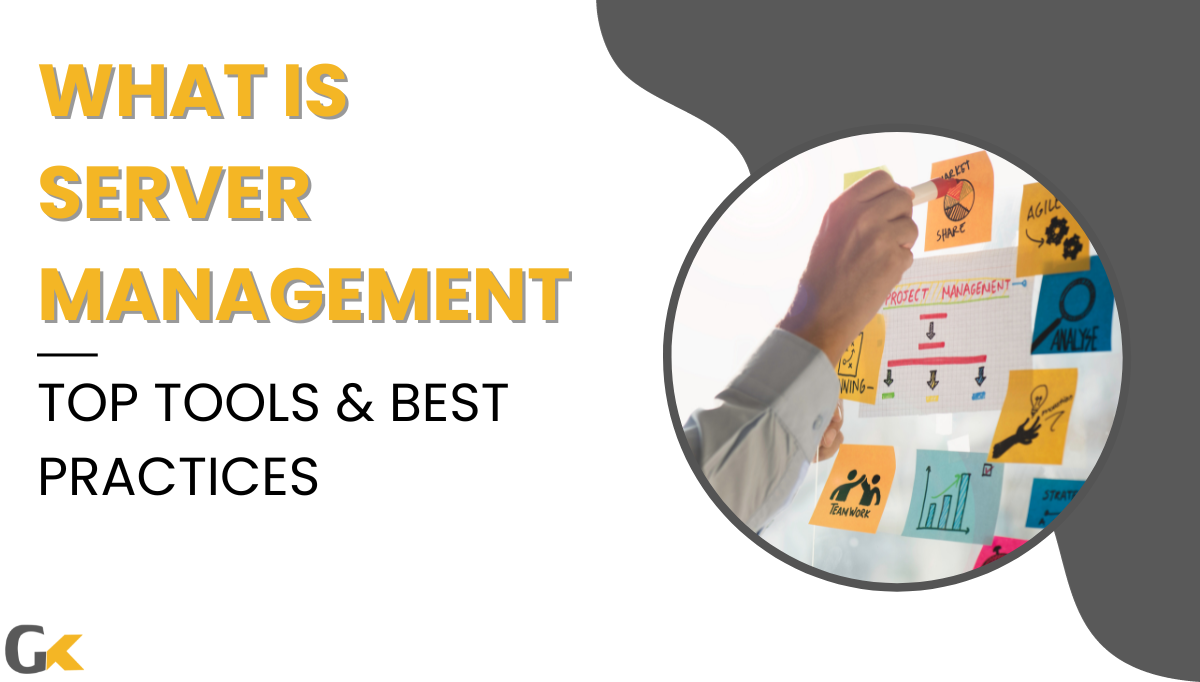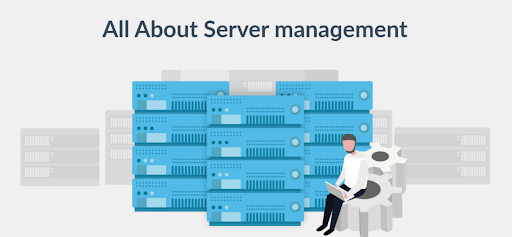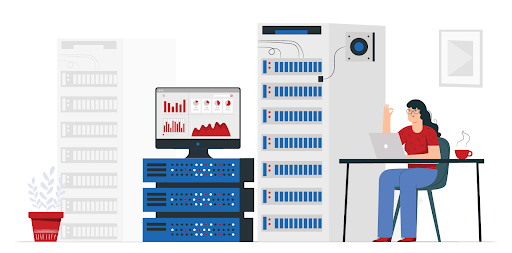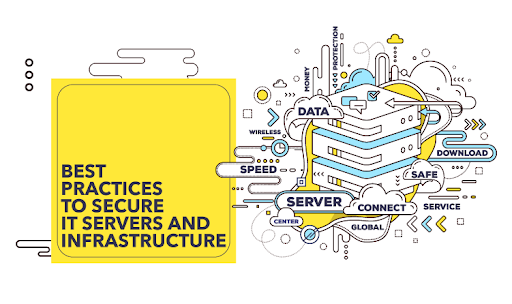Introduction
“Are you navigating the complex world of server management and feeling overwhelmed? You’re not alone.” In today’s digital age, where data is king and downtime is the archenemy, understanding the intricacies of Server Maintenance has become more crucial than ever for small and medium businesses, especially those in the United States and Canada. But what is server management, and why is it so vital for your business’s success?
In this detailed guide, we’ll dive deep into the world of server or Infrastructure Management, unraveling its mysteries and presenting it in a way that’s both informative and accessible. From the fundamental concepts of server systems to the advanced tools and strategies used by top server management companies in Canada, we’ll cover it all. Whether you’re grappling with the basics of IT server management, seeking the best server management software, or exploring options for Toronto dedicated servers, this post is your one-stop resource.
But that’s not all. We’ll also share industry insights on server management best practices, ensuring that your business is not just surviving, but thriving in the digital realm. By the end of this journey, you’ll not only understand what is server management but also how to leverage it to give your business a competitive edge. So, buckle up and get ready to transform your approach to Server Maintenance!
What is Server Management?
Server Maintenance refers to the process of maintaining and operating a server to ensure it functions efficiently, securely, and reliably. This involves a range of activities, including:

- Monitoring Server Performance: Regularly checking the server’s health, such as its processing speed, memory usage, and disk space.
- Security Management: Implementing measures to protect the server from cyber threats, such as firewalls, antivirus software, and intrusion detection systems.
- Software Updates and Patch Management: Keeping the server’s software up-to-date to ensure security and efficiency.
- Backup and Recovery: Regularly backing up data and having a plan for quick recovery in case of data loss.
- Troubleshooting and Support: Addressing and resolving any issues or malfunctions that arise with the server.
Server Basics: Understanding the Fundamentals
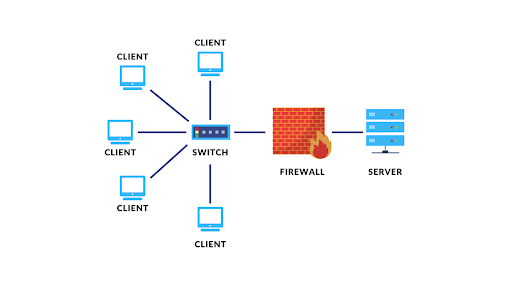
Understanding server basics involves knowing what servers are and their role in a business’s IT infrastructure. Key points include:
- Definition and Role: A server is a computer or system that provides resources, data, services, or programs to other computers, known as clients, over a network.
- Types of Servers: There are various types of servers, including web servers, email servers, database servers, and file servers, each serving a specific function.
- Server Hardware: This includes the physical components like CPU, RAM, hard drives, and network connections.
- Server Operating Systems: These are specialized OSs like Windows Server or Linux distributions designed for server use.
Server Management Tools: Enhancing Efficiency
Server management tools are software solutions that help automate and simplify the management of servers. They include:
- Monitoring Tools: Software like Nagios or Zabbix that helps in real-time monitoring of server health and performance.
- Automation Tools: Tools like Puppet or Chef that automate the process of deploying and managing servers.
- Performance Tuning Tools: Software that helps optimize server performance, such as Apache JMeter.
Server Management Software: The Backbone of IT Infrastructure
Server management software is essential for the efficient operation of server infrastructure. It includes:
- Operating Systems: Like Windows Server or Linux distributions, which are the foundation of server functionality.
- Database Management: Software like MySQL or Microsoft SQL Server that manages and stores data.
- Network Management: Tools that help in managing network traffic and resources.
Server Management Service: Outsourcing for Efficiency
Outsourcing server management involves hiring external companies to handle the server operations. This can include:
- 24/7 Monitoring: Continuous monitoring of server health and performance.
- Maintenance and Updates: Regular updating and maintenance of servers.
- Security Management: Implementing and managing security protocols.
- Technical Support: Providing expert support for any server-related issues.
Server Systems: The Heart of Modern Business
Server systems are crucial for modern businesses as they: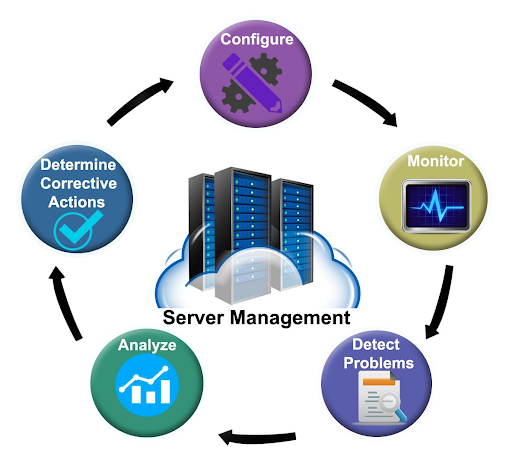
- Store and Manage Data: Servers are central to storing and managing the vast amounts of data a business generates.
- Host Applications: Many business applications run on servers, whether on-premises or in the cloud.
- Enable Communication: Servers facilitate internal and external communication, such as email and customer relationship management systems.
Server Management Companies in Canada: Local Expertise
Canadian Server Maintenance companies offer:
- Local Data Centers: Ensuring faster data access and compliance with Canadian data laws.
- Customized Solutions: Tailored services that meet the specific needs of Canadian businesses.
- Expertise in Local Market: Understanding of the Canadian market and its unique challenges.
Server Best Practices: Ensuring Optimal Performance
Best practices in server management include:
- Regular Monitoring and Maintenance: Keeping a close eye on server performance and health.
- Robust Security Measures: Implementing comprehensive security protocols to protect against cyber threats.
- Efficient Resource Management: Optimizing the use of server resources to ensure high performance.
- Disaster Recovery Planning: Having a solid plan in place for data recovery in case of any disaster.
IT Server Management: A Strategic Approach
A strategic approach to IT server Operations management involves:
- Aligning with Business Goals: Ensuring that the server management strategy supports the overall business objectives.
- Scalability Planning: Preparing the server infrastructure to scale up or down based on business needs.
- Incorporating Emerging Technologies: Staying updated with the latest technologies, like cloud computing and virtualization, to enhance System Administration.
- Regular Audits and Updates: Continuously auditing and updating the server infrastructure to maintain optimal performance and security.
Conclusion
“Embarking on Server Maintenance the journey can be daunting, but it’s a path filled with opportunities for growth and innovation.” As we wrap up this comprehensive exploration of System Administration, it’s clear that the role it plays in the modern business landscape is indispensable. From the backbone of IT infrastructure to the heartbeat of daily operations, effective Server Administration is the key to unlocking efficiency, security, and scalability.

For small and medium businesses in the United States and Canada, the journey doesn’t end here. It’s an ongoing process of learning, adapting, and evolving with the ever-changing technological landscape. Remember, the tools, practices, and strategies discussed are not just guidelines but stepping stones to building a robust and resilient server infrastructure.
As you move forward, consider partnering with experts like GoGeekz, who can provide tailored server management solutions that align with your unique business needs. With their expertise and your newfound knowledge, you’re well-equipped to navigate the complexities of server Maintenance confidently.
Take the next step with GoGeekz.
Embrace the power of efficient System Administration and watch as your business reaches new heights of success and innovation. Whether it’s managing Toronto dedicated servers, optimizing server systems, or implementing best practices, GoGeekz is your partner in this ever-evolving journey. Reach out today and transform your System Administration into a strategic asset for your business.
FAQs
Industry Experiences
Innovative services for your business
We’re dedicated to making your businesses reliable, efficient, and safe.
We’re a one-stop solution for everything IT you need. Whatever you need, we got you covered:
Server management involves overseeing and maintaining your server infrastructure to ensure optimal performance, security, and reliability. It’s crucial for your business as it ensures that your data is secure, your applications run smoothly, and your IT infrastructure aligns with your business goals. To get a tailored server management solution that fits your business needs, contact GoGeekz today.
Server management tools automate and streamline various tasks such as monitoring server performance, managing network traffic, and ensuring data security. This automation not only saves time but also reduces the risk of human error, leading to more efficient business operations. Discover the best tools for your business with GoGeekz’s expert consultation.
Absolutely! Outsourcing server management can be highly beneficial, especially for small and medium businesses. It allows you to focus on your core business activities while experts handle the complex tasks of server management. This can lead to better performance, enhanced security, and cost savings. Learn more about how GoGeekz can help manage your servers by scheduling a consultation.
Key best practices in server management include regular monitoring and maintenance, implementing robust security measures, efficient resource management, and having a solid disaster recovery plan. Adhering to these practices ensures your servers are reliable and secure. For a comprehensive review and implementation of these practices, reach out to GoGeekz.
Aligning server management with your business strategy involves understanding your business goals and ensuring your IT infrastructure supports these goals. This includes scalability planning, incorporating emerging technologies, and regular audits. For strategic alignment of your server management with your business goals, consult with GoGeekz’s experts.

